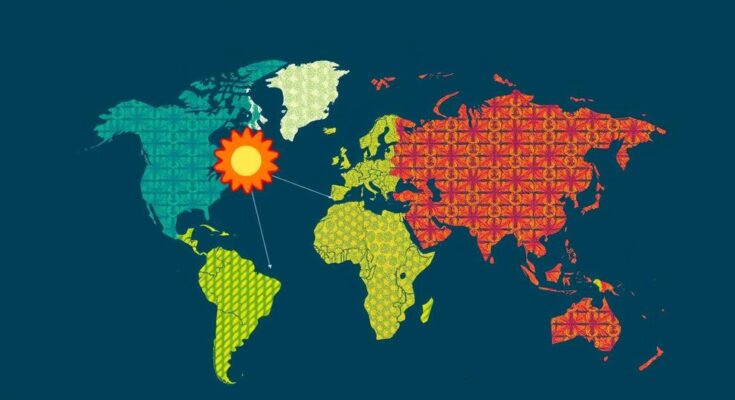Malado Barro, a Mali immigrant in New York, recounts her childhood struggles with water scarcity caused by climate change, a situation reflected in the experiences of many African migrants today. With the presidential election approaching, concerns arise that political narratives may negatively impact these immigrants’ plight, as highlighted by Ahmed Gaya from the Climate Justice Collaborative, who calls attention to the need for supportive political engagement.
The plight of climate-impacted immigrants is compounded by uncertainty surrounding the upcoming presidential election, as individuals like Malado Barro, an immigrant from Mali residing in New York, have faced severe challenges due to climate-related issues. Growing up in Sikasso, Mali, Barro recounts her experiences of assisting her father, a farmer, in accessing water for their agricultural needs amidst harsh droughts. The struggle to secure water resulted in significant stress for her family, revealing the deep and lasting impacts of climatic changes on livelihoods. As climate change continues to affect many communities globally, it has led to increased migration, particularly among those arriving in New York from African nations. These immigrants have been forced to flee their homes due to deteriorating living conditions caused by climate change, including the inability to find work or live safely. Advocates for immigrants express concern that the upcoming election might have adverse effects on the situation of these newcomers who seek refuge and support in New York. Ahmed Gaya, who serves as the director of the Climate Justice Collaborative at the National Partnership for New Americans, emphasized that while the organization refrains from endorsing or criticizing specific political candidates, it remains worried about the rhetoric surrounding migrants in the current political environment. This sentiment reflects broader apprehensions within the immigrant community, which fears that political discourse could shift in ways that further marginalize and jeopardize their status.
The article centers on the critical intersection of climate change and immigration, focusing particularly on the experiences of individuals who migrate due to environmental degradation. It highlights the real-life challenges faced by migrants such as Malado Barro, who have been directly affected by climate phenomena like drought and water scarcity. The broader context involves the increasing number of individuals who are leaving their homeland in search of safer and more stable living conditions exacerbated by the implications of climate change. As political dynamics shift with an approaching election, the apprehensions of these communities regarding their future in the United States are heightened, revealing the vulnerability of climate-affected migrants in the face of uncertain political landscapes.
In conclusion, the upcoming presidential election raises significant concerns for climate-impacted immigrants, as illustrated by Malado Barro’s experiences with drought and the subsequent migration pressures faced by many individuals in similar situations. The attitudes towards migrants expressed by politicians during this electoral cycle have instilled a sense of worry among both new arrivals and organizations dedicated to their support. It is paramount to recognize the implications of political discourse on the welfare of these vulnerable communities as they seek safety and stability in the United States.
Original Source: www.nycitynewsservice.com




